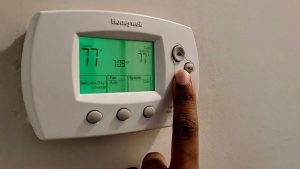
Anyone who was a student knows very well what it means to live not “high on the hog.” After all, this is such a time when you want everything at once. Of course, the most obvious way out is looking for a part-time job. But usually, students are not paid much for such work. That’s why saving, whatever one may say, is necessary.
By the way, you should not refuse to use useful services, even if you need to save money. There are services that are affordable to all students. For example, you can buy coursework or other paper types to spend less time on studies and earn extra money. On such sites, you can order writing a paper at an affordable price. This is a great way to solve your homework problem and save money at the same time.
How to save
- Follow the promotions of stores nearby.
- Check out food sharing and donation communities in your city (people are often willing to give away good food and items for free).
- Compare prices for goods on the Internet when you decide to buy something (especially for household/computer/mobile devices, medicines).
- Find out if there are any student discounts (especially important for cultural institutions).
- Cook it yourself. Eating in cafes and restaurants will still be more expensive.
- If you have a long trip, consider the possibility of traveling with fellow travelers, check the price change schedule (if it is a train or plane), and choose the date with the lowest price.
- Buy seasonal food and freeze or dry them. This especially concerns the period of summer, when we can buy many vegetables, herbs, and fruits cheaper. You will thank yourself for the money saved and the preserved benefits of food in winter.
- View the posters of your city. Usually, there is something interesting every month, and attendance to some shows will be either free or very cheap. Also, keep an eye on the cultural life of your university. There are a lot of interesting things for students: from concerts to language clubs.
- Repair, if possible, what is broken. You don’t have to throw something out right away. See if the thing can be restored. Usually, you can solve many problems with a needle and thread, duct tape, or superglue.
- Avoid overproduction. Did you not plan and cook a lot of pasta? Freeze some parts that later you can reheat and eat. You don’t have to throw away valuable resources and waste time on cooking again.
- Find budget accommodation. A significant part of the funds for studying is spent on paying for accommodation. The cheapest housing option is a student residence on the university campus. But if your chosen university does not provide housing, look for a room in city student dormitories. If possible, choose a room for several people, so the cost of living is cheaper. You can also rent an apartment near the university or live with a host family. Find the neighbors so that the rental price is not too high.
- Give preference to bicycles and buses. Speaking about how a student can save money, it is necessary to mention the means of transportation. First of all, make sure that your housing is as close to the university as possible. Ideally, you can walk to class. But if, for one reason or another, the university is located far enough, transport costs can be reduced if you have a special student card issued at the university. Be sure to ask your university administration for such a card. You can also buy or rent a bicycle or electric scooter.
- Choose low-cost or free entertainment. Spending every evening in nightclubs and bars is not only expensive but also not very healthy. Check local event posters and try to find more budget-friendly entertainment: free festivals and picnics, open-air movie screenings, museum nights, and more. With a student ID and ISIC card, you can get a discount on entry to many museums, theaters, cinemas, galleries, zoos, and other cultural venues.
How to improve your position
- Some students paint portraits to order, others engage in woodcarving, while others make eyelash extensions or do manicures. Think about how to do something that can bring income. Sometimes students turn to their classmates for help in writing essays, research papers, coursework, etc. If you are skilled in writing, you can use this option.
- If the drug you need is expensive, look for its counterparts. They are usually much cheaper (lots of examples on the Internet).
- Find out if you are eligible for any privileges/payments/scholarships. If you are a good student, making progress in sports, science, or culture, there is a chance of getting some financial aid from the institute.
- Find new recipes. In this way, you can combine simple products into tasty meals, which can diversify your life and will not harm your wallet.
- Cultivating frugality is a wonderful personality trait that allows things to last longer.
- Promote your skills, meet new people. The more connections you have, the more likely it is to find out about the possibility of a part-time job.
- Check with your university about student teams and work opportunities during vacations. For example, the university may offer students jobs as counselors to children’s recreation camps.
- Study different everyday life hacks. This will help you manage your household more intelligently, increase efficiency, and reduce costs.
- Sell old textbooks and clothes. If you are no longer using your old study materials, sell them. If you have unwanted clothes, you can sell them too. There are sites where you can present unnecessary books for sale. They will probably be bought quickly because books are in great demand. There are also services where you can sell clothes.
- Grow food. In this way, you know for sure that your food is organic and save at the same time. There will be little time elapsed between harvesting and eating, which means homegrown food will be healthier. Growing food at home is good for the environment as food does not need to be transported in vehicles that pollute the atmosphere.
- Compare ticket prices from different operators before purchasing. There are special sites for this.
I hope some of my tips will help you in practice. Now you know how to plan a budget wisely, whatever it may be!




